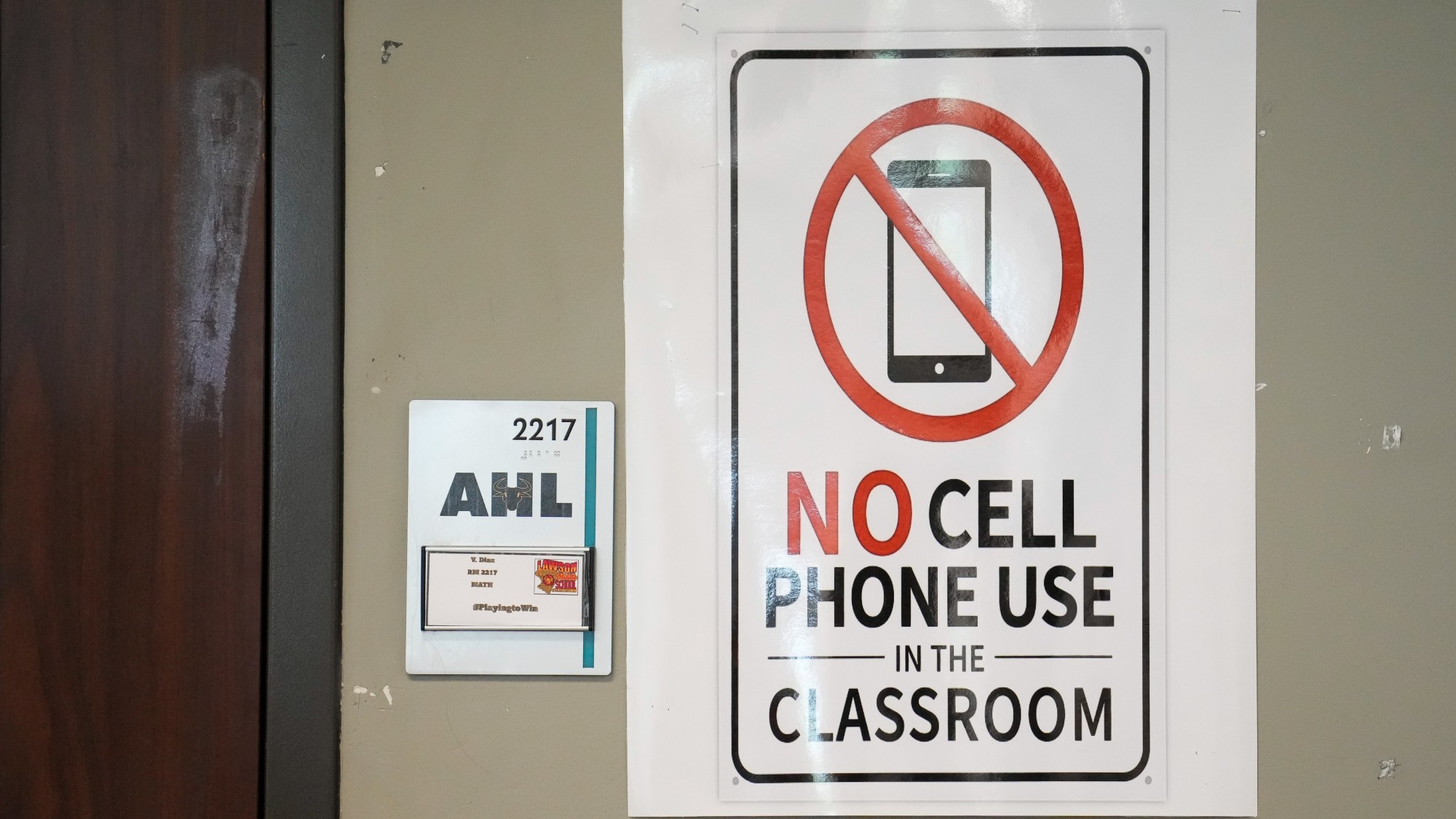Why so many UK teachers are quitting
National Education Union warns of exodus due to excessive workloads

A free daily email with the biggest news stories of the day – and the best features from TheWeek.com
You are now subscribed
Your newsletter sign-up was successful
Four out of 10 teachers plan to quit the profession within the next five years, citing workload pressures and too much of a focus on assessment, according to a poll by the UK’s biggest teaching union.
Contributors to the National Education Union (NEU) State of Education survey published at its annual conference in Liverpool, had been asked “what would be the one thing that would make your job better in the next 12 months?” and responses “were dominated by calls for a reduction in workload, with widespread complaints about heavy marking and over-assessment”, says The Guardian.
The poll of 8,600 teachers, school leaders and support staff found that 56% felt their work-life balance had got worse or much worse in the past year, compared with 31% who said it was unchanged and 12% who saw improvements.
The Week
Escape your echo chamber. Get the facts behind the news, plus analysis from multiple perspectives.

Sign up for The Week's Free Newsletters
From our morning news briefing to a weekly Good News Newsletter, get the best of The Week delivered directly to your inbox.
From our morning news briefing to a weekly Good News Newsletter, get the best of The Week delivered directly to your inbox.
One respondent said: “Less assessment for pupils; it creates too much pressure on pupils and creates too much marking for teaching, which is taking away from valuable lesson planning, which would be much more beneficial for pupils.”
Another said: “Working 70 hours a week for many years has meant my health and family life have suffered. I am getting out before the job kills me.”
At the end of last year Education Support Partnership (ESP), a charity that offers mental health support to anyone working in education in England and Wales, said that in 2018 it had seen the number of teachers calling its confidential helpline rise by 35%, to 8,668 cases.
“What we’re hearing is that people have lost a sense of agency,” said Julian Stanley, ESP’s chief executive, in The Guardian last year. “There is constant change – new initiatives, new curriculum changes. A number of pressures tell us that it’s not a whinge; it’s a fact. Teachers feel they need to be trusted, and need support.”
A free daily email with the biggest news stories of the day – and the best features from TheWeek.com
The NEU joint general secretary Kevin Courtney accused the government of doing little more than “fiddling at the edges” in its attempts to address teacher workload. “So long as the main drivers of a performance-based system are still in place, schools will continue to be in the grip of a culture of fear, over-regulation, and a lack of trust,” he said.
“We need drastic action and a major rethink from government if we are to stop the haemorrhaging of good teachers from the profession.”
In addition, recruitment targets for teachers “have been missed in England for five years in a row”, says the BBC.
Education Secretary Damian Hinds has acknowledged that long hours and red tape are among the “biggest threats” to recruiting and retaining staff.
A spokesperson for the Department for Education said reducing teacher workload was a key part of its retention and recruitment strategy.
“We have worked with school leaders and teachers to create a workload reduction toolkit, which provides practical advice and resources that schools can use rather than creating new ones from scratch,” he added.
“We are also tackling excessive data burdens in schools; simplifying the accountability system to target the associated burdens and working with Ofsted to ensure staff workload is considered as part of a school’s inspection judgement.”
-
 The environmental cost of GLP-1s
The environmental cost of GLP-1sThe explainer Producing the drugs is a dirty process
-
 Greenland’s capital becomes ground zero for the country’s diplomatic straits
Greenland’s capital becomes ground zero for the country’s diplomatic straitsIN THE SPOTLIGHT A flurry of new consular activity in Nuuk shows how important Greenland has become to Europeans’ anxiety about American imperialism
-
 ‘This is something that happens all too often’
‘This is something that happens all too often’Instant Opinion Opinion, comment and editorials of the day
-
 The pros and cons of banning cellphones in classrooms
The pros and cons of banning cellphones in classroomsPros and cons The devices could be major distractions
-
 School phone bans: Why they're spreading
School phone bans: Why they're spreadingFeature 17 states are imposing all-day phone bans in schools
-
 Schools: The return of a dreaded fitness test
Schools: The return of a dreaded fitness testFeature Donald Trump is bringing the Presidential Fitness Test back to classrooms nationwide
-
 Send reforms: government's battle over special educational needs
Send reforms: government's battle over special educational needsThe Explainer Current system in 'crisis' but parents fear overhaul will leave many young people behind
-
 Education: Can public schools be religious?
Education: Can public schools be religious?Feature A Supreme Court seems ready to rule in favor of religious charter schools in Oklahoma, which could reshape public education
-
 America's academic brain drain has begun
America's academic brain drain has begunIN THE SPOTLIGHT As the Trump administration targets universities and teachers, educators are eying greener academic pastures elsewhere — and other nations are starting to take notice
-
 Schools' Send crisis: how can it be fixed?
Schools' Send crisis: how can it be fixed?Today's Big Question Government urged to reform support for children with special educational needs and disabilities and save councils from bankruptcy
-
 Unschooling: the radical education trend raising eyebrows
Unschooling: the radical education trend raising eyebrowsUnder the radar Some parents are letting their children lead their education